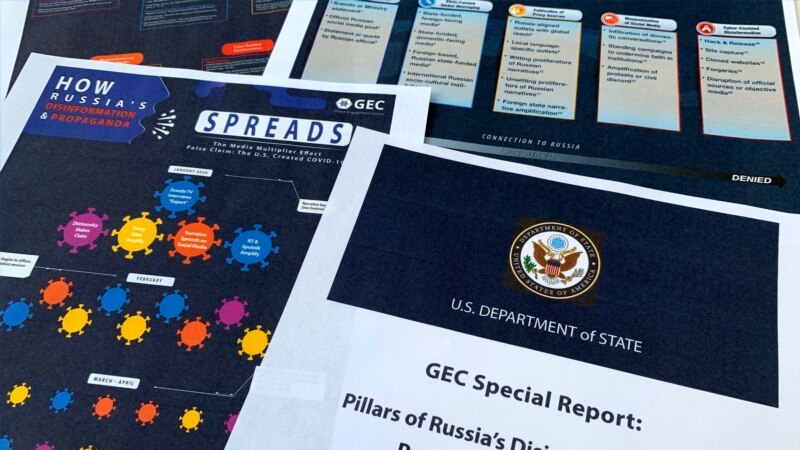The United States plans to sign a memorandum of understanding to cooperate with South Korea and Japan in the fight against false propaganda and disinformation.
It will be the first such agreement that Washington signs with its Asian allies, and it comes as U.S. officials and lawmakers accuse the People’s Republic of China of conducting “deceptive online campaigns” targeting the United States and other countries. Chinese officials have rejected the accusation.
Liz Allen, the U.S. undersecretary of state for public diplomacy and public affairs, is traveling to Asia this week. Allen will be sealing the agreement with South Korea and Japan on countering disinformation, according to U.S. and diplomatic sources.
U.S. President Joe Biden, South Korean President Yoon Suk Yeol and Japanese Prime Minister Fumio Kishida have agreed to find ways to coordinate efforts to counter disinformation, after the three leaders held talks during their first trilateral summit at Camp David in August.
“President Yoon mentioned the threat from false propaganda and disinformation in his address to the joint session of U.S. Congress in April. In this regard, we are now discussing the possible follow-up measures with the U.S.,” an official from the South Korean Embassy told Voice of America on Thursday.
In a statement on Thursday, House Foreign Affairs Committee Chairman Michael McCaul condemned the “increasingly deceptive online campaigns targeting the U.S. and other countries” by the Chinese Communist Party.
“The CCP has made clear it will use every tactic to spread its malign intent,” the Republican congressman said.
The South Korean government has identified 38 suspected fake Korean-language news websites that it believes are operated by Chinese companies. For example, in November, South Korea’s National Intelligence Service said two Chinese public relations companies, Haimai and Haixun, were allegedly creating such websites, according to Seoul-based Yonhap News Agency.
The State Department said Allen, while in Tokyo, will hold bilateral discussions with Japanese Ministry of Foreign Affairs officials that include a focus on countering malign foreign influence.
In a report issued in September, the State Department’s Global Engagement Center accused the Chinese government of using a combination of tactics in a bid to create a world in which Beijing, either explicitly or implicitly, controls the flow of critical information. The U.S. has warned that China is pouring billions of dollars into efforts to reshape the global information environment and, eventually, bend the will of multiple nations to Beijing’s advantage.
The Chinese Ministry of Foreign Affairs has pushed back, saying the report by U.S. State Department’s Global Engagement Center “misrepresents facts and truth.” A spokesperson from the Chinese Foreign Ministry called GEC the command center of “perception warfare.”
James Rubin, special envoy for the State Department’s Global Engagement Center, has said that Washington is working with allies to detect and counter misinformation and disinformation around the world.
In May, the U.S. signed a memorandum of understanding with North Macedonia, and in September, another with Bulgaria, both aimed at enhancing cooperation in countering foreign information manipulation.

